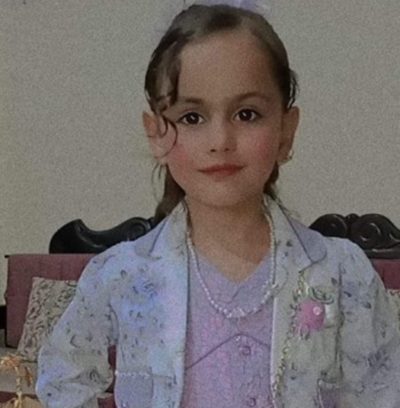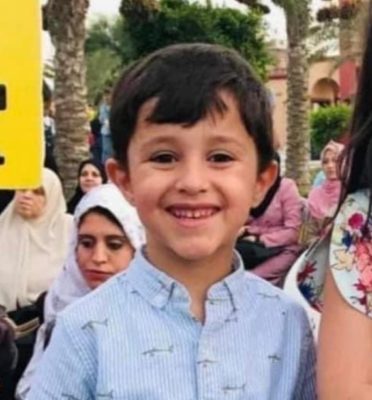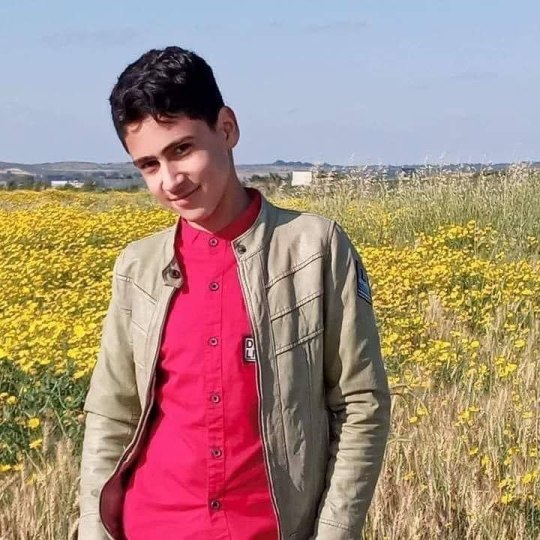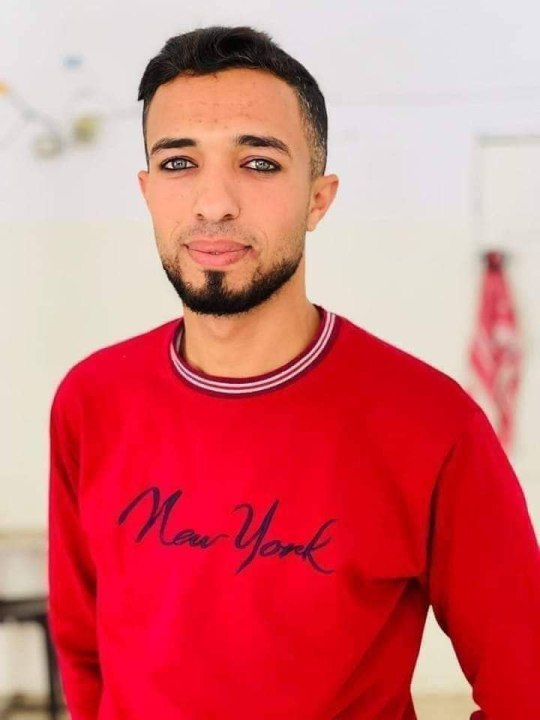#hajar ali
Text










The Glass House, Lake Wakatipu, New Zealand,
Designer: @reverse.orientalism
#art#design#architecture#luxury pad#ultimate pad#interior design#luxurypad#concept#glass house#retreat#lake house#new zealand#hajar ali#reverse.orientalism#cgiart#luxury houses#luxury homes
439 notes
·
View notes
Text
হাজার ফুলে ধন্য বাগান / সাইফ আলি
হাজার ফুলে ধন্য বাগানভাবো একবার শুধু তুমি নেইকি হবে বাগান থেকে তোমার নামেযেখানে তোমার কোনো ভূমি নেই?বন্ধু, তুমি কি ভুলে গেছো তোমাকেই??
অন্যের পায়ে পায়ে চলছো তুমিঅন্যের কথাগুলো বলছো তুমিতোমাকে নিয়ে কে ভাববে বলোআমলের খাতা হাতে দাঁড়াতে হবেস্রষ্টার সম্মুখে তোমাকেই।।
সবচে কাছের যেচোখ তাকে চিনেছেদ্বিধাহীন চিত্তে কি বলতে পারো?মিছে কেনো ভাবছোনিজেকে চেনার বাকি রয়েছে আরো।।নিজেকে তালাশ করোনফসের হাল…
View On WordPress
#গান#বাংলা গান#সাইফ আলি#সাইফ আলির গান#হাজার ফুলে ধন্য বাগান#bengali song#hajar fule dhonno bagan#Saif Ali#song#song by Saif Ali
0 notes
Text










A Home By Hajar Ali
Courtesy: @Reverse.Orientalism
#art#design#architecture#minimalism#luxuryhouse#luxuryhome#homeconcept#houseconcept#render#cgiart#hajarali#reverseorientalism#luxury lifestyle#gardens#landscaping
833 notes
·
View notes
Photo









The Martyrs of Gaza. Yesterday's airstrikes on Gaza saw the martyrdom of 3 families from this Earth: the Izz Al-Deen family, the Al-Bahtini Family, and the Khaswan family with a young girl as the sole survivor from the Khaswan family, who will now grow up without a family.
-- Palestinian Youth Movement, 9 May 2023
Khalil Salah Al-Bahtini, 45, Gaza
Hajar Al-Bahtini, 5, Gaza
Laila Al-Bahtini, 44, Gaza
Yousef Khaswan, 20, Gaza
Dr. Jamal Khaswan, 53, Gaza City
Mervat Khaswan, 45, Gaza
Jihad Abdul-Hafeth Ghannam, 63, Gaza
Wafa Shadid Ghannam, 50, Gaza
Dania Adas, 19, Gaza
Eman Adas, 14, Gaza
Tariq Izz Al-Deen, 49, Jenin
Miyar Izz Al-Deen, 11, Jenin
Ali Izz Al-Deen, 9, Gaza City
Palestinian child Rami Shady Hamdan, known for his outstanding performance at school, has succumbed to injuries sustained by an Israeli airstrike on the northern Gaza Strip's Beit Hanoun town.
A photo of Alaa Barka, a Palestinian youth who was killed today in an Israeli airstrike on the city of Khan Younis in the southern Gaza Strip.
-- Quds News Network, 10 May 2023
258 notes
·
View notes
Photo










an AI inspired Jim Thompson House in Bangkok generated by artist Hajar Ali @reverse.orientalism
191 notes
·
View notes
Text
Stop Waiting for The "Right Time"
@edgarhamas
Belum lama saya membaca sebuah kalimat, "train yourself to stop waiting for the 'right time'." Kau perlu melatih dirimu untuk berhenti menunda sebuah pekerjaan karena menganggap akan ada waktu yang tepat.
Sebab, waktu yang tepat itu kapan?
Kita tak pernah tahu masa depan dan kejutan-kejutan apa yang disiapkan oleh Allah di lintasan takdir selanjutnya.
Sebagai orang beriman, kita disuruh oleh Allah untuk berikhtiar. Mengumpulkan sebab-sebab kesuksesan semaksimalnya, namun yang namanya kesuksesan serta kemenangan adalah hak prerogatif Allah. Seperti Ibunda Hajar yang teguh mencari air ke bukit Shafa dan Marwa, sesegera mungkin, demi agar Ismail kecil bisa mendapat seteguk minum. Akhirnya, justru air itu muncul dari dekat Ismail. masyaAllah.
Seperti pula Abu Bakr yang segera tanpa banyak basa-basi langsung membenarkan apa kata Rasulullah ﷺ, dan bersegera pula untuk menebar kebaikan ini agar orang lain juga mendapat manfaatnya. Dan itulah mengapa namanya adalah Abu Bakr. "Bakr" bermakna awal pagi. Dan awal pagi adalah waktu bagi orang-orang yang bersegera menghadapi dunia saat yang lain masih hinggap di gulingnya.
Amal yang disegerakan tanpa menanti-nanti akan membuahkan kesan tersendiri.
Dan itulah yang Allah firmankan, "Dan bersegeralah kamu mencari ampunan dari Tuhanmu dan mendapatkan surga yang luasnya seluas langit dan bumi yang disediakan bagi orang-orang yang bertakwa..." (QS Ali Imran 133)
Awalnya memang sulit, awalnya memang akan merobohkan ekspektasi. Awalnya akan membuatmu sedikit getir kenapa tidak sesuai harapan. Namun justru sebuah rencana baik yang diawali dengan langkah nyata, akan membuatmu kaya akan pengalaman.
Kamu dididik Allah dengan proses, dan lama-lama kamu akan ahli. Kelak, momentum itu akhirnya datang, bukan ketika waktunya benar, tapi karena kamu sudah siap mental dan siap pengalaman.
Itulah mengapa banyak ulama zaman dulu pernah memberi perumpamaan menarik tentang mencari ilmu, "orang yang belajar di masa kecil, seperti orang yang mengukir di atas batu..." Banyak di antara kita memahami kata mutiara ini setengah-setengah. Mengira bahwa mengukir di atas batu itu mudah.
Bukankah mengukir di atas batu itu butuh proses dan pengulangan? Sebab tidak pernah kita melihat seorang pengukir batu hanya butuh satu sentuhan untuk membuat ukuran yang bagus. Kecuali Spongebob. Hehe. Itu pun tidak nyata.

Seperti itulah sebuah impian dan rencana baik. Yang ia butuhkan adalah kamu memulainya meski "baru" itu masih sangat keras dan berlumut. Tapi semakin panjang kau habiskan hari-hari dengan kebiasaan itu, "batu" itu berubah sedikit-sedikit, menjadi ukiran indah yang tak mudah dihapus.
#renungan#catatan#kontemplasi#islamic#inspirasi#islamicquotes#daily reminder#quotation#tadabbur#edgarhamas
460 notes
·
View notes
Text
Anonymous asked: hi!!! i was hoping you could provide a list of some actresses that have resources with them veiling? i'd prefer a good mix of cultures & ethnicities not just hijabis. also open to all ages! thank you!!!
(I somehow deleted the ask but I luckily sent it to a friend asking for suggestions! I sadly couldn't find many cultures with notable actresses/roles but I hope this helps.)
Afsaneh Bayegan (1961) Iranian.
Mahtab Keramati (1970) Iranian.
Leila Hatami (1972) Iranian.
Vishka Asayesh (1972) Iranian.
Hanan Tork (1974) Egyptian.
Elma Theana (1974) Indonesian.
Sarah Vi (1976) Indonesian.
Mahnaz Afshar (1977) Iranian.
Mercy Aigbe / Hajiya Meena (1978) Nigerian.
Sareh Bayat (1979) Iranian.
Niusha Zeighami (1980) Iranian.
Tannaz Tabatabaei (1983) Iranian.
Negar Javaherian (1983) Iranian.
Elnaz Shakerdoost (1984) Iranian.
Baran Kosari (1985) Iranian.
Yuna (1986) Malay and Bugis.
Heliza Helmi (1986) Malaysian.
Leah Vernon (1988) African-American.
Neelofa (1989) Malaysian.
Dina Torkia (1989) Egyptian / English.
Bella Dally (1991) Malaysian.
Wawa Zainal (1991) Bruneian, Bajau Malaysian, and Tausug Filipino.
Mariah Idrissi (1992) Pakistani and Moroccan.
Maria Alia (1993) Palestinian / Puerto Rican.
Mira Filzah (1993) Malaysian.
Elfira Loy (1994) Malaysian.
Leena Asad / With Love Leena (1994) Palestinian.
Habiba da Silva (1994) Lebanese, Syrian / Brazilian (Unspecified North African, Unspecified West African, Unspecified Indigenous, Italian, Spanish, Portuguese).
Jasmine Fares (1995)
Shahd Batal (1996) Sudanese.
Hajar Brown (1996) Moroccan.
Sabina Hannan (1996) Bangladeshi.
Halima Aden (1997) Somali.
Sonita Alizadeh (1997) Afghan.
Halima (1997) Somali.
Sarina Farhadi (1998) Iranian.
Touka El-Fawwal (1998) Egyptian.
Imen Siar (1999) Moroccan, Italian and British.
Laura Melodie Lutiq (?)
Roles only:
Öykü Karayel (Ethos) Turkish.
Yasmine Al Massri (Quantico) Palestinian / Egyptian.
Gizem Erdogan (Caliphate) Turkish.
Gülsim Ali (Payitaht Abdülhamid) Turkish.
Anjana Vasan (We Are Lady Parts) Tamil.
Juliette Motamed (We Are Lady Parts) Iranian.
Sarah Kameela Impey (We Are Lady Parts) Afro Guyanese / British.
Lucie Shorthouse (We Are Lady Parts) Kenyan.
Faith Omole (We Are Lady Parts) Black British.
Shraddha Kapoor (Haseena Parkar) Punjabi / Marathi and Konkani.
Medalion Rahimi (NCIS: LA) Iranian, Mizrahi Jewish.
Sunita Mani (Mr. Robot) Indian.
Nikohl Boosheri (The Bold Type) Iranian.
Mina El Hammani (Elite) Morrocan.
Assa Sylla (Skam France) Black French.
Iman Meskini (Skam) Tunisian / Norwegian.
Nicole Chamoun (Safe Harbour) Lebanese.
Amanda Stephen (Orange Is the New Black) Black Canadian.
Sinem Öztürk (Huzur Sokagi) Turkish.
Burçin Abdullah (Selam) Turkish.
Helana Sawires (Ali's Wedding) Egyptian.
Esra Bilgiç (Dirilis: Ertugrul) Turkish.
Özge Yagiz (Yemin) Turkish.
Nazanin Boniadi (Homeland) Iranian.
Alia Bhatt (Gully Boy) Kashmiri and German.
10 notes
·
View notes
Text

🌺 𝗧𝗵𝗲 𝗯𝗲𝘀𝘁 𝗶𝗯𝗮𝗮𝗱𝗮𝗵 𝗱𝘂𝗿𝗶𝗻𝗴 𝘀𝘂𝗵𝗼𝗼𝗿 𝗶𝘀 𝗮𝗹-𝗜𝘀𝘁𝗶𝗴𝗵𝗳𝗮𝗿
The most principal ‘ibaadah during the time of suhoor is seeking Allah’s forgiveness. Suhoor time refers to the end of the night, just before dawn. Allah says in the Qur’an:
وَٱلۡمُسۡتَغۡفِرِينَ بِٱلۡأَسۡحَارِ
🌿 ❛[The people of taqwa] make istighfar during {al-ashar | predawn i.e. the time for suhoor}.❜ 【Surah Ali Imran 3:17】
وَبِٱلۡأَسۡحَارِ هُمۡ يَسۡتَغۡفِرُونَ
🌿 ❛And during {al-ashar | predawn i.e. the time for suhoor}, they were found making istighfar.❜ 【Surah adh-Dhariyat 51:18】
And Imam Ibn Hajar rahimahullah said that the du'a and istighfar made during the time of suhoor are easily granted by Allah.
What about iftar? What's the most critical du'a we can make before we break our fast other than the prescribed Sunnah du'a?
It’s also asking for Allah’s forgiveness.
🌿 Rasulullah ﷺ said: ❛At every breaking of the fast, Allah has people whom He frees (from the Fire), and that happens every night.❜ [Sunan Ibn Majah 1643 | Graded Fair]
From these, we learn how important it is to seek Allah’s forgiveness throughout our days and nights in Ramadan. May Allah choose us among those who are freed from the Hellfire, and grant us all a full pardoning.
Your sister in Deen,
Aida Msr ©
4 notes
·
View notes
Text
Hikmah pengasuhan, sejatinya…
Hari ini, masya Allah banyak orang tua berbondong-bondong belajar parenting, merencanakan konsep pengasuhan sematang mungkin, tak jarang pula yang niatnya ‘agar tidak mengulang kesalahan orang tuanya yang dahulu’, hingga praktisi parenting pun banyak alirannya. Tentu ini adalah sebuah kemajuan, sampai aku dan teman-teman selingkaranku pernah wondering: kira-kira apa ya, tantangan yang akan dihadapi oleh anak-anak yang orang tuanya belajar parenting? Masalah baru apa di masa depan yang muncul dalam satu generasi tersebut? Hehe. Agak lucu, orang tua belajar parenting tapi malah khawatir akan tantangan baru sebuah generasi🤣, tapi bener juga ya. Setiap generasi pasti ada masalahnya.
Kali ini aku ingin mengabadikan 2 hikmah pokok pengasuhan, yang aku sarikan dari nasehat Teh Karina Hakman dalam kelas Series Home Education yang aku ikuti. Menurutku, dua hal ini menjadi pondasi bagi seorang Ibu - terlepas dari apapun aliran parenting-nya- dalam pengasuhan seorang anak. Dua hal ini pula yang PASTI bisa diaplikasikan dari Ibu zaman baheula sampai Ibu-ibu sosyielita zaman ayeuna.
1. Do’a
Dalam Qur’an, kisah pengasuhan oleh seorang Ibu dicatat bukan tentang bagaimana mempersiapkan anak menjadi Hafizh Qur’an, atau anak yang pintar, atau bagaimana mengajari anak agar rajin sholat, bukan pula tentang bagaimana seorang Ibu itu mempersiapkan permainan terbaik, ataupun nutrisi terbaik. Namun tentang do’a seorang Ibu. Potongan kisah Istri Imran (yang beberapa ulama tafsir menyebutkan nama beliau adalah Hannah), berdo’a ketika masa kehamilan seperti yang tercatat dalam surah berikut:
(Ingatlah), ketika istri Imran berkata, “Ya Tuhanku, sesungguhnya aku bernazar kepada-Mu, apa (janin) yang dalam kandunganku (kelak) menjadi hamba yang mengabdi (kepada-Mu), maka terimalah (nazar itu) dariku. Sungguh, Engkaulah Yang Maha Mendengar, Maha Mengetahui.” (QS. Ali Imran: 35)
Sang Ibu, mendo’akan agar janin yang ada di dalam kandungannya menjadi hamba Allah, mengabdikan dirinya kepada Allah sepenuhnya ketika di dunia. Allah Maha Tahu ketulusan dan kesungguhan do’a sang Ibu, maka Allah kabulkan do’a tersebut secara spesifik: menjadi hamba yang mengabdi kepada-Nya. Siapakah dia? Dialah Maryam binti Imran, yang tidak hanya diterima do’a sang Ibu agar Maryam menjadi hamba yang mengabdi sepenuhnya, tetapi Allah juga jamin kehidupannya Maryam, rezekinya, pendidikannya, serta kesuciannya. Allah kirimkan Zakaria, yang juga seorang Nabi sekaligus pamannya, sebagai orang yang membantu memenuhi kebutuhan Maryam. Hingga Allah takdirkan Maryam mengandung janin, yang juga merupakan seorang yang istimewa, nabi Allah, Nabi Isa as.
Ketulusan do’a Ibu, pintu keberkahan kehidupan seorang Maryam. Sang Ibu ‘hanya’ berdo’a agar anaknya menjadi hamba yang mengabdi kepada Allah, lalu Allah beri lebih banyak dari pintanya. Dan siapa lagi yang lebih baik pengasuhannya daripada anak yang dijaga oleh Allah?
2. Ketaatan kepada Allah
Berkisah pula kehidupan Ibunda Hajar, istri dari Nabi Ibrahim as., Ibunda dari Nabi Ismail as. Tentu kita tidak asing mendengar sepenggal kisah tentang Ibunda Hajar bersama bayi Ismail, yang ditinggal oleh Nabi Ibrahim atas perintah Allah, di padang pasir gersang, tanpa makanan, tanpa air, tanpa rumah. Alih-alih bilang tak sanggup, Bunda Hajar justru menerima ketetapan Allah untuk bersama dengan Nabi Ismail as. karena keimanannya yang luhur bahwa Allah tidak akan menelantarkan keduanya. Tatkala Ismail kehausan, Hajar berangkat mencari air, bulak-balik dari bukit Safa ke bukit Marwah, hingga 7 kali. Jika pakai logika, buat apa kembali lagi bulak-balik, tadi kan sudah dilihat tidak ada apa-apa. Namun, jauh dari itu, perjuangan Ibunda Hajar mengajarkan tentang ikhtiar manusiawi yang maksimal, sebagai wasilah pertolongan Allah datang. Tawakkal tidak berarti berdiam diri. Tawakkal artinya berusaha-semampu yang sang Ibu bisa, walau mungkin ‘tak linear’ dengan hasil yang akan Allah beri, membawa keyakinan penuh dalam hati bahwa Allah akan memampukan. Kala mata air terpercik dekat kaki bayi Ismail, disitulah mula keberkahan dari ketaatan Ibunda Hajar. Zam-zam, tidak hanya menghilangkan dahaga Nabi Ismail kala itu, tapi juga menjadi awal berdirinya kota Mekkah. Karena mata air tersebut terus ada dan mengalir, banyak kafilah dagang dari banyak tempat singgah, hingga ramai, lalu berdirilah peradaban di sana.
Siapa yang sangka, ikhtiar Bunda Hajar untuk ‘lari-lari kecil’ dari Safa ke Marwah, yang disertai keikhlasan dan ketaatan kepada Allah, yang niatnya ‘hanya’ untuk mencari minum anaknya saja, ternyata berkontribusi atas peradaban baru yaitu kota Mekkah, sampai hari ini menjadi peradaban ummat Muslim di dunia, semua terpaut hatinya ingin berbondong-bondong datang ke sana.
Kisah-kisah di atas menjadi refleksi besar tentang cara pengasuhan yang tidak boleh lepas dari seorang Ibu. Terkadang, waktu dan tenaga kita sedikit, kemampuan kita terbatas, pengetahuan kita tak banyak. Kita sering disibukkan dengan masalah anak: kok belum bisa jalan, kok belum bicara, kok hiperaktif, kok makannya susah, kok BB nya seret, kok belum bisa baca, kok rewel terus, kok ini kok itu. Laa hawla walaa quwwata illa billaah. Tugas Ibu adalah ‘lari-lari’ kecil seperti Ibunda Hajar, dan langitkan do’a terbaik seperti Istri Imran. Dengan hati yang bertawakkal.
Carilah keberkahan, dengan do’a dan ketaatan. Allah yang akan tambah. Allah yang jaga anak-anak kita. Allah yang mampukan anak-anak kita. Dari jalan yang mungkin tidak pernah kita sangka.
***
Bandung, 9 Maret 2023 | 23.24 pm
9 notes
·
View notes
Text
JAFAR IBN ABI TALIB (جعفر بن أبي طالب)
Jafar ibn Abi Talib was the paternal cousin of the Messenger of Allah ﷺ. He was from the first and foremost to embrace Islam, along with his brother Ali. He was the 26th man to embrace Islam. The Prophet ﷺ paired him with Muadh ibn Jabal.
Abu Huraira said, "Jafar was extremely kind to the poor.¹ And Abu Huraira said, Jafar loved the poor. He would sit and talk with them, and they would conversate with him such that the Messenger of Allah ﷺ named him 'the father of the poor.'
The Prophet ﷺ said to Jafar:
أَشْبَهْتَ خَلْقِي وَخُلُقِي
You resemble me in appearance and in character.²
¹ Sahih al-Bukhari, 5432.
² Jami at-Tirmidhi, 4132.
Book: The Noble Men Who Met The Messenger
Taken from Attainment of the Objective in Distinguishing the Companions by Ibn Hajar Asqalani & The Lives of Noble Figures by Imam adh-Dhahabi
Translated by Rasheed Barbee
Authentic Statements Publications
P. 19
5 notes
·
View notes
Text
MasyaAllah, pertolongan Allah tu ada ajayaa 🥺 miracle si lebih tepatnya.
Habis pulang bagiin takjil, ternyata ban motor bocor. Kempes se kempes nya, udah oleng mau jatuh. Pulangnya terakhir, bentar lagi mau adzan maghrib, belum ada makanan bukaan, bengkel dah pada tutup. Djiwaa mamak" sudah panic 🥲 tapi pak suam stay kalem🌻. Alhamdulillah adik bisa jemput w sama bocil", thank you nis. Terus jemput pak suam lagi sambil bawain takjil, thank you ummi. Ternyata doi dah dorong motor jauh, cari bengkel. MasyaAllah nemu bengkel yang buka maghrib".
" mas, nanti aja gpp... mas nya buka aja dulu. Saya mau ke masjid."
Cuss lah, w dan pak suam ke masjid dulu.
Habis dari masjid beli lauk buat makmal.
"Yang, semoga uangnya cukup ya."
"Ya Allah.. "
.
.
Di jalan pulang w berdoa moga uangnya cukup untuk ganti ban. Dan ternyata pulang" pak suam cerita kalau tadi gratiss 🥺 MasyaAllah, hari ini w belajar dari tawakal nya pak suam. Seperti Hajar yang mencari zam zam. Berlari kesana kemari, memberikan ikhtiar terbaik dan berhusnudzon kepada Allah.
"Apabila kamu telah membulatkan tekad, Maka bertawakkallah kepada Allah. Sesungguhnya Allah menyukai orang-orang yang bertawakkal kepada-Nya” (QS Ali Imran: 159).
Semoga Allah selalu memberkahi aktivitas kita ❤️
12 Ramadhan 1444H
2 notes
·
View notes
Text
Abu Al-Khayr Al-Aqta’ said:
“I entered the city (Madinah) of Allah’s Messenger ﷺ and I was in state of poverty (Faaqah).
I stayed five days without eating anything.
I came towards the blessed grave (of the Prophet ﷺ) and said Salaam to the Prophet ﷺ and to Abu Bakr and Umar then said:
“I am your guest tonight, Ya Rasoolullah!”
I then stepped aside and slept behind the Minbar.
I saw the Prophet ﷺ in my dream, with Abu Bakr to his Right, Umar to his left, and Ali ibn Abi Talib in front of him.
Ali shook me and said,
“Get up, Rasoolullah is coming.”
I got up and kissed him between his eyes, he gave me a loaf of bread, I ate half of it, when I woke up I found half a loaf in my hand.”
[Imam Ibn Al-Jawzi, Sifat Al-Safwa, 2/421;
Imam Ibn Al-Jawzi, Muthir Al-‘Azm Al-Sakin, 2/303;
Imam Ibn Asakir, Tarikh Dimashq, 66/161;
Imam Sulami, Tabaqat Al-Sufiyyah, 1/281;
Imam Ismail Al-Asbahani, Siyar Al-Salaf Al-Saliheen, 1/1250;
Imam Al-Dhahabi, Tarikh Al-Islam, 25/488;
Imam Ibn Al-Najjar, Al-Durratul Samina, Page : 400;
Imam Sakhawi, Al-Qawl Al-Badee, Page : 166;
Imam Samhudi, Wafa Al-Wafa, 4/200;
Imam Ibn Hajar Al-Haytami, Ad-Durrul Mandud, Page : 163]
6 notes
·
View notes
Text
🥀🕯🥀 Lady Fatima Zahra (sa) 🥀🕯🥀
🥀🕯🥀 On The Last Day 🥀🕯🥀
🥀 On the Day when the oppressed shall bite their hands (in fear); when the oppressors shall be gathered in humiliation and lowliness, remembering their disgraceful and shameful deeds:
Then every one of them shall review his file, which is packed with oppression against his chosen worshippers. On that Day shall every human, whatever color, creed, faith, and his deeds may be shall be gathered, no one will be left behind. Even the fetus who was the victim of abortion shall come that Day to present his/her case. Then the great personality of Lady Fatima az-Zahra (sa) shall become manifest to every soul.
Following are several narrations reported by Ahlul-Bayt (as) regarding Fatima (sa) on the Last Day:
1. Hakim reported in Al-Mustadrak v.2, p.153 that ‘Ali (as) said:
"I heard the Prophet say:
"On the Day of Rising, a caller shall announce from beyond the veil: "O gathered people, lower your eyes so that Fatima, the Daughter of Muhammad, may pass."
This narration has also been reported by:
Ibn Al-Athir in Usd al-Ghaba v.5, p.523;
Ganji Shafiee in Kifayat At-Talib p. 212;
Dhahabi in Mizan al-Etedal v.2, p.18; and by
Hamwini in Yanabi' al-Mawaddah p.104, who added the following to it:
‘Ali (as) reported that the Prophet (S) said:
"On the Day of Rising, a caller shall call from the sole of the Throne:
O people of Resurrection, cast your eyes down, so that Fatima Bint Muhammad may pass-while holding Al-Husayn's shirt, which will (still) be saturated with blood.' She will then embrace the leg of the Throne, and say:
O (Allah), You are the Omnipotent and Just; pass the judgment between me and those who killed my son." (The Prophet (S) added): "Then He shall judge according to my Sunnah, by the Lord of Kaaba, Fatima will then say:
O Allah! Grant me intercession for everyone who cried for his disaster; Allah will then grant her intercession for them."
2. Abu Nu'aym in Dala'el al-Nobowwah, Ibn Hajar in al-Sawa'iq al-Muhriqah, and others have reported that Abu Ayuoub Ansari said:
"The Messenger of Allah (S) said that a caller shall call from the sole of the Throne: O gathered people, lower your heads and cast your eyes down so that Fatima Bint Muhammad may pass on the Path.' He added: `She then passes accompanied by seventy thousand Huri Al-Een, as if they were a flashing light."
3. Many Sunni Scholars have reported that Allah's Messenger (as) stated that Lady Fatima az-Zahra (sa) shall arrive at the gathering place (while) riding Ghadha', or, Gusua female camel.
4. Jaber Ibn Abdullah Ansari said:
"I said to Abu Ja'far (Imam Al-Baqir (as)): `May I be your sacrifice son of Allah's Messenger; narrate to me a hadith in regard to the noble traits of your grandmother Fatima az-Zajra, so that if I report it to your Shiites (followers), they would rejoice at (hearing) it!'
Abu Ja'far (as) said: `My father told me that my grandfather reported that Allah's Messenger (as) said:
"On the Day of Rising, Minbars of light shall be erected for the prophets and messengers, one of which my Minbar shall be the highest among all Minbars on that day. Allah will then say: Deliver a speech,' so I will deliver a speech that none of the prophets, or, messengers have ever heard. Then for the successors (of prophets) shall be erected Minbars of light, and in the middle of these Minbars one shall be erected for my successor, ‘Ali Ibn Abu Talib, which will be higher than all their Minbars. Allah will then say:
"‘Ali, deliver a speech.' So, he will deliver a speech like no successor has ever heard before. Then for the children of the prophets and messengers shall be erected Minbars of light; among them shall be a Minber of light for my two sons, grandsons and the two flowers of my life (Al-Hasan and Al-Husayn). Then it shall be said to them: "Deliver speeches." So, they will deliver two speeches like none of the children of the prophets and messengers have ever heard before!
"A caller-Gabriel-shall then call:
`Where is Fatima Bint Muhammad?'
She (sa) will rise..." (until he said):
'Allah, the blessed and exalted is His Name, shall say:
`O people of the gathering; to whom does honor belong today?'
So Muhammad, ‘Ali, Hasan and Al-Husayn will say:
'To Allah, The one, The Almighty
'Allah the Exalted will say:
"O people of the gathering: lower your heads and cast your eyes down, for this is Fatima proceeding towards Paradise.' Gabriel shall then bring her a female camel from the female camels of Paradise; its sides shall be embellished, its muzzle with fresh pearls, and it shall have a saddle of coral. It shall kneel down in her presence; so she will ride it. Allah will then send 100, 000 angels to accompany her on her right side, and 100, 000 angels to accompany her on her left side, and 100, 000 angels to lift her onto their wings until they bring her to the gate of Paradise. When she is near the gate of Paradise, she will look to her side. Allah will then say:
"Daughter of My beloved, why did you look to your side after I gave the command that you enter my Paradise?"
She will say: "My Lord, I wished that my position would be realized on such a Day!"
Allah will say:
"Daughter of My beloved!
Go back, and look for everyone in whose heart was love for you, or, for any of your progeny; take their hand and lead them into paradise!"
Abu Ja'far (as) said: "By Allah; Jabir, she will pick her Shiites (followers) and those who love her just like a bird picks good seeds from bad seeds. So, that when her Shiites are near the gate of Paradise, Allah will inspire their hearts to look to their sides; when they do, Allah, The Almighty, will say:
My beloved ones, why did you look around when Fatima, the daughter of my beloved one, interceded for you?'.
They will answer: `Our Lord! We hoped that our position would be known on such a day!'
Allah will then say: `My beloved ones, go back and look for everyone who loved you for your love for Fatima;
Look for everyone who fed you for the love of Fatima;
Look for everyone who clothed you for the love of Fatima;
Look for everyone who gave you a drink for the love of Fatima;
Look for everyone who prevented (Gheeba) backbiting from being done against you for the love of Fatima...
Take their hands and lead them into Paradise... "'
5. Ibn Abbas said: "I heard Amir Al-Mu’mineen, ‘Ali (as) say:
Once the Messenger of Allah (S) entered the house of Fatima az-Zahra (sa), and found her in a sad mood. So, he said: `What has made you sad daughter?'
Fatima az-Zahra (sa) replied: `Father, I remembered the gathering (Day), and people standing naked on the Day of Resurrection!'
He said: Daughter, surely it will be a great Day. But, Gabriel informed me that Allah, Glorified and Exalted is He, said that the first one upon whom the ground shall be split opened is me, then your husband, ‘Ali Ibn Abu Talib (as); then Allah shall send Gabriel accompanied by seventy thousand angels and he will erect on your grave seven domes of light, after which Israfil will bring you three garments of light and stand by your head and say to you:
"O Fatima Bint Muhammad, rise towards your gathering place."
"You (Fatima) shall then rise secure from fear and veiled (in privacy). Israfil will hand you the garments and you will wear them. Rafael will then bring you a female camel of light; its muzzle shall be made of fresh pearls and on it shall be a howdan of gold. You will ride it and Rafael shall lead it by its muzzle while seventy thousand angels holding the banners of glorification accompany you.
When the caravan hurries with you, seventy thousand Huris shall receive you rejoicing at seeing you; while every one of them will be holding a censer of light from which the fragrance of incense is spread without fire. They shall be wearing crowns of jewels embellished with green chrysolites."
6. Bihar v.10, on the authority of Amali (by Saduq) reports that Imam Baqir (as) said:
"I heard Jabir Ibn Abdullah Ansari say: Allah's Messenger said: On the Day of Rising, My daughter, Fatima, shall arrive riding a female camel from among the camels of Paradise-to her right shall be seventy thousand angels and to her left shall also be seventy thousand angels; Gabriel will be holding its muzzle and calling with the loudest of voices: `Cast down your eyes so that Fatima Bint Muhammad may pass!"
"Then shall no prophet, messenger, truthful one, or martyr remain without casting their eyes down until Fatima passes... Then a call shall come from the side of Allah, the Exalted:
My beloved one and the daughter of my beloved one; ask Us and you shall be given (whatever you wish), and intercede, your intercession shall be accepted. By my Honor and Exaltation, the oppression of no oppressor shall pass My (judgement) today.
Then she (Fatima az-Zahra -sa) will say:
"O Allah, My Master;
My progeny, My Shiites (followers), the Shiites of my progeny, those who love me and those who love my progeny."
She will then hear a call from Allah's side, may His Name be exalted:
"Where are Fatima's progeny, her Shiites, those who love her, and those who love her progeny?" They will then come forward, surrounded by angels of mercy, and Fatima will lead them into Paradise."
🥀 Intercession in The Qur’an 🥀
The narrations just mentioned, prove beyond doubt that intercession is a given fact and a right granted to some chosen worshippers of Allah (SwT)
Yet, some heedless Muslims argue that intercession is a sort of polytheism, as if they have not read the Holy Qur’an. The following Qur’anic verses explicitly speak of intercession on the Day of Rising.
"Who is there can intercede in His presence except as He permitteth?" (2: 255)
"And they offer no intercession except for those who are acceptable." (21: 28)
"No intercessor (can plead with Him) except after His Leave." (10: 3)
"None shall have the power of intercession, but such a one as has received permission (or, promise) from the Most Gracious (Allah)." (12: 87)
"On that Day shall no intercession avail except for those for whom permission has been granted by (Allah) the Most Gracious." (20: 109)
"No intercession can avail His presence, except for whom He has granted permission." (34: 23)
"Their intercession will avail nothing except after Allah has given leave for whom He pleases and that he is acceptable to Him." (53: 26)
These verses speak of intercession on the Day of Rising. There are also Qur’anic verses, which prove intercession in this world; some of these verses are:
1. "If they had only, when they were unjust to themselves, come unto thee and asked Allah's forgiveness, and the Apostle had asked forgiveness for them, they would have found Allah indeed oft-returning, Most merciful." (4: 64)
2. They said: "O our father! Ask for us forgiveness for our sins, for we were truly at fault." (12: 97)
3. “And, ask forgiveness for thy fault, and for the men and women who believe." (67: 19)
4. “And. pray on their behalf, verily thy prayers are a source of security for them." (9: 103)
5. "Whoever recommends, and helps a good cause becomes a partner therein." (4: 85)
Moreover, Sayyid Muhammad Husayn Tabataba'i explained what intercession means in his Al-Mizan v.1, pp.227-265. He says:
"When he (man) wants to get a reward without doing his task; or, to save himself from punishment without performing his duty, then he looks for someone to intercede on his behalf. But intercession is effective only if the person for whom one intercedes is otherwise qualified to get the reward, and has already established a relationship with the authority. If an ignorant person desires appointment to a prestigious academic post, no intercession can do him any good; nor, can it avail in case of a rebellious traitor who shows no remorse for his misdeeds, and does not submit to the lawful authorities. It clearly shows that intercession works as a supplement to the cause; it is not an independent cause. The effect of an intercessor's words depends on one, or, the other factor, which may have some influence upon the concerned authority; in other words, intercession must have solid ground to stand upon. The intercessor endeavors to find a way to the heart of the authority concerned, in order that the said authority may give the reward to, or, waive the punishment of, the person who is the subject of intercession. An intercessor does not ask the master to nullify his mastership, or, to release the servant from his servitude; nor, does he plead with him to refrain from laying down the rules, and regulations for his servants, or, to abrogate his commandments (either generally, or, especially in that one case), in order to save the wrongdoer from the due consequences, nor, does he ask him to discard the canon of reward and punishment, (either generally or in that particular case). In short, intercession can interfere with neither the institution of mastership and servitude, nor, the master's authority to lay down the rules; nor can affect the system of reward and punishment. These three factors are beyond the jurisdiction of intercession.
What an intercessor dose is this: He accepts the inviolability of the above-mentioned three aspects. Then he looks at one or more of the following factors and builds his intercession on that basis:
a. He appeals to such attributes of the master as give rise to forgiveness, e.g., nobility, magnanimity and generosity.
b. He draws attention to such characteristics of the servant as justify mercy and pardon, e.g., his wretchedness, poverty, low status and misery.
c. He puts at stake his own prestige and honor in the eyes of the master. Thus, the import of intercession is like this: I cannot and do not say that you should forget your mastership over your servant, or, abrogate your commandment, or, nullify the system of reward and punishment. What I ask of you, is to forgive this defaulting servant of yours because you are magnanimous, and generous, and because no harm would come to you if you forgive his sins; and/or because your servant is a wretched creature of low status, and steeped in misery; and, it is befitting of a master like you to forgive and pardon him in honor of my intercession.
The intercessor, in this way, bestows precedence on the factors of forgiveness, and pardon over those of legislation and recompense. He removes the case from the latter's jurisdiction putting it under the former's influence. As a result of this shift, the consequences of legislation (reward and punishment) do not remain applicable. The effect of intercession is, therefore, based on shifting the case from the jurisdiction of reward, and punishment to that of pardon, and forgiveness; it is not a confrontation between one cause (divine legislation) and the other (intercession).
By now, it should have been clear that intercession too is one of two causes; it is the intermediate cause that connects a distant cause to its desired effect.
Allah is the ultimate Cause. This causality shows itself in two ways:
🍂First: In Creation🍂
Every cause begins from Him and ends up to Him; He is the first and the final Cause. He is the real Creator and Originator. All other causes are mere channels to carry His boundless mercy and limitless bounty to His creatures.
🥀 Second: In Legislation 🥀
He, in His mercy, established a contact with His creatures; He laid down the religion, sent down His commandments, and prescribed suitable reward and appropriate punishment for His obedient and disobedient servants; He sent Prophets and apostles to bring us good tidings and to warn us of the consequences of transgression. The prophets (as) and apostles conveyed to us His message in the best possible way. Thus, His proof over us was complete: and the word of your Lord has been accomplished with truth and justice, there is none to change His words. (6: 115).
Both aspects of causality of Allah (SwT) may be, and in fact are, related to intercession.
1. Intercession in creation: Quite obviously the intermediary causes of creation are the conduits that bring the divine mercy, life, sustenance and other bounties to the creatures; and as such they are intercessors between the Creator and the created. Some Qur’anic verses, too, are based on this very theme:
`Whatever is in the Heavens and whatever is in the Earth is His: who is he that can intercede with Him but by His permission' (2: 255);
`Surely your Lord is Allah, who created the Heavens and the Earth in six periods, and He is firmly established on throne, regulation the affair; there is not intercessor except after His permission' (10: 3).
Intercession in the sphere of creation is only the intermediation of causes between the Creator and the created thing and effect, in bringing it into being and regulating its affairs.
2. Intercession in legislation: Intercession, as analyzed earlier, is effective in this sphere too. It is in this context that Allah (SwT) says:
`On that day shall no intercession avail except of him whom the Beneficent God allows and whose word He is pleased with' (20: 109);
And intercession will not avail aught with Him save of him whom He permits' (34: 23);
And how many an angel is there in the Heavens whose intercession does not avail at all except after Allah has given permission to whom He pleases and chooses' (53: 26); ...
and they do not intercede except for him whom He approves...' (21: 28);
And those whom they call upon besides Him have no authority for intercession, but he who bears witness of the truth-and they know (him)' (43: 86).
These verses clearly affirm intercessory role for various servants of Allah, both men and angels, with divine permission and pleasure. It means that Allah (SwT) has given them some power, and authority in this matter, and to Him belongs all the kingdom and all the affairs. Those intercessors may appeal to Allah's mercy, forgiveness and other relevant attributes to cover, and protect a servant who otherwise would have deserved punishment because of his sins, and transgressions. That intercession would transfer his case from the general law of recompense to the special domain of grace, and mercy. (It has already been explained that the effect of intercession is based on shifting a case from the former's to the latter's jurisdiction; it is not a confrontation between one law and the other.) Allah (SwT) clearly says;
so, these are they of whom Allah (SwT) changes the evil deeds to good ones' (25: 70).
Allah (SwT) has the power to change one type of deed into another, in the same way as He may render an act null and void. He says:
And, We will proceed to what they have done of deeds, so We shall render them as scattered floating dust' (25: 23);
so He rendered their deeds null' (47: 9);
`If you avoid the great sins which you are forbidden, We will expiate from you your (small) sins' (4: 31);
`Surely Allah does not forgive that anything should be associated with Him, and forgives what is besides that to whomsoever He pleases' (4: 48).
The last verse quoted, is certainly about the cases other than true belief and repentance; because with belief and repentance even polytheism is forgiven, like any other sin. Also, Allah may nurture a small deed to make it greater than the original:
`These shall be granted the reward twice' (28: 54);
`whoever brings a good deed, he shall have ten like it' (6: 160);
Likewise, He may treat a nonexistent deed as existing: And, (as for) those who believe and their offspring and We will not diminish to them aught of their work; every man is responsible for what he has done' (52: 21).
"To make a long story short, Allah (SwT) does what He pleases; and decrees as He wills. Of course, He does so pursuant to His servants' interest, and in accordance with an intermediary cause and intercession of the intercessors (e.g., the prophets, the friends of Allah and those who are nearer to Him) is one of those causes, and certainly no rashness or injustice is entailed therein.
It should have been clear by now that intercession, in its true sense, belongs to Allah only; all His attributes are intermediaries between Him and His creatures and are the Channels through which His grace, mercy and decrees pass to the creatures; He is the real and all-encompassing intercessor: Say: `Allah's is the intercession altogether' (39: 44),
you have not besides Him any guardian or any intercessor' (32: 4); ...
there is not guardian for them nor any intercessor besides Him' (6: 51).
The intercessors, other than Allah, get that right by His permission, by His authority.
In short, intercession with Him is a confirmed reality, in cases where it does not go against the divine glory and honor."
Sayyid Tabatabai also answers the following question: Who are the Intercessors?
He writes:
"It has been described that intercession takes place in two spheres: in creation and in legislation. So far as the intercession in creation is concerned, all intermediary causes are intercessors because they are placed between the Creator and the created.
As for the intercessors, the sphere of legislation and judgment, they may be divided into two categories:
(1) Intercessors in this life, and (2) those in the hereafter.
Intercessors in this life: All the things that bring a man nearer to Allah and make him eligible for divine forgiveness. The following come into this category:
a. Repentance: Allah says: `Say: O my servants! Who have acted extravagantly against their own souls, do not despair of the mercy of Allah; surely Allah forgives the faults altogether; surely He is the Forgiving, the Merciful And return to your Lord...' (39: 53-54).
It covers all the sins, even polytheism; if one repents from it and believes in One God, one's previous polytheism is wiped out and forgiven.
b. True faith; Allah says: `O you who believe! 'Fear Allah and believe in His Apostle: He will give you two portions of His mercy, and make for you a light with which you will walk, and forgive you...' (57: 28).
c. Good deed: Allah has promised those who believe and do good deeds (that there is) for them pardon and great recompense' (5: 9);
`O you who believe! Fear Allah and seek an approach (medium) to Him...' (5: 35).
There are many verses with this theme.
d. The Qur’an: `Indeed has come to you from Allah a light and a manifest Book whereby Allah guides him who follows His pleasure, into the ways of peace, and takes them out from darkness towards the light by His will and guides them to the straight path' (5: 16).
e. Anything related to a good deed, like the mosques, holy places and auspicious days.
f. The prophets and the apostles, as they seek forgiveness for their people. Allah says: `And had they, when they were unjust to themselves, come to you and asked forgiveness of Allah, and the Apostle had (also) asked forgiveness for them, they would have found Allah oft-returning (to mercy), Merciful' (4: 64).
g. The angels, as they too ask forgiveness for the believers. Allah says: `Those who bear the throne and those around it, celebrate the praise of their Lord and believe in Him and ask forgiveness for those who believe' (40: 7);
and the angels celebrate the praise of their Lord and ask forgiveness for those on earth...' (4: 5).
h. The believers themselves, as they seek pardon for their believer brothers and for themselves. Allah quotes them as saying. - `and pardon us, and forgive us, and have mercy on us. Thou art our Guardian...' (2: 286).
Intercessors in the hereafter: We use the term intercessor, in the meaning explained in the beginning. The following come into this category:
a. The prophets and the apostles: Allah says: And they say: "The Beneficent God has taken to Himself a son. Glory be to Him. Nay! They are honored servants; they do not precede Him in speech and (only) according to His commandment do they act. He knows what is before them and what is behind them, and they do not intercede except for him whom He approves...' (21: 26-28).
Those who were called `son' of God, are in fact His honored servants and they do intercede for him whom He approves. Among them is Isa (Jesus), son of Maryam, and he was a prophet. It means that the Prophets do intercede for approved persons.
Again Allah says: And those whom they call upon besides Him have no authority for (or, do not own) intercession, but he who bears witness to the truth and they know (him)' (43: 86).
b. The angels: The preceding two verses prove that the angels too may intercede, because they too were called daughters of Allah. Moreover, Allah says: And how many an angel is there in the Heavens whose intercession does not avail at all, except after Allah has given permission to whom He pleases and chooses' (53: 26);
`On that day shall no intercession avail except of him whom the Beneficent God allows and whose word He is pleased with. He knows what is before them and what is behind them...' (20: 109-110).
c. The witnesses; Allah says: And those whom they call upon besides Him have no authority for (or, do not own) intercession, but he who bears witness of truth and they know (him)' (43: 86).
This verse shows that those who bear witness of the truth do have authority for intercession. The witness mentioned here, does not mean the one killed in the battlefield. It refers to the witness for the deeds, as was described in the Chapter of the Opening.
d. The believers: They shall be joined to the witnesses on the Day of Judgment; it follows that they, too, may intercede-like the witnesses. Allah says: And (as for) those who believe in Allah and His apostles, these it is that are the truthful and the witnesses with their Lord..." (57: 19).
It is noticeable that Sayyid Tabataba'i did not mention the Imams or Fatima (sa) in his categorization of the intercessors. This is because the Imams are among the witnesses that he spoke of. In his explanation of the sixth verse of chapter one (1), and verse 143 of chapter two (2), he implicitly stated that what is meant by the witness on the right path, are the Imams (as). In addition to this, there are various narrations, which clearly state that they (as) are the ones meant by the witnesses.
Lady Fatima az-Zahra (sa) undoubtedly is included among the believers who are intercessors on the Day of Rising. If a certain class of believers have the right of intercession, then it is only reasonable that she (sa) is at the top of the category. Nevertheless, the previously mentioned narrations regarding her intercession deem it unnecessary for us to speak further about this matter.
🥀Traditions Regarding Intercession🥀
Sayyid Tabataba'i has also selected several traditions which speak of intercession on the Day of Rising by the Prophet (S), and Ahlul-Bayt (as). In order to become more familiar with the subject from this viewpoint, some of these narrations are mentioned here:
1. Al-Husayn Ibn Khalid narrates from Imam Al-Ridha (as), who narrated through his forefathers from the Leader of the Faithful (as) that he said:
"Messenger of Allah (S) said: `Whoever does not believe in my reservoir, may Allah not bring him to my reservoir, and whoever does not believe in my intercession, may Allah not extend to him my intercession.' Then he said: `Verily, my intercession is for those of my Ummah who shall have committed great sins; as for the good-doers, there shall be no difficulty for them." Al-Husayn Ibn Khalid said: "I asked Al-Ridha (as); `O son of the Messenger of Allah! What is then the meaning of the words of Allah, Mighty and Great is He: `and they do not intercede except for him whose religion Allah is pleased with, "' (Al Amali, As-Saduq).
2. "Suma'ah Ibn Mihran narrates from Abu Ibrahim (as) that he said about the words of Allah:
`May be your Lord will raise you to a praised position': The people, on the Day of Resurrection, will remain standing for forty years; and the sun will be ordered so that it will ride over their heads and they will be bridled with sweat, and the earth will be told not to accept any of their sweat. So, they shall approach Adam to intercede for them, and he will direct them to Nuh, and Nuh will direct them to Ibrahim, and Ibrahim will direct them to Musa, and Musa will direct them to Isa, and Isa will direct them saying: `You should seek help from Muhammad, the last Prophet.' Thereupon, Muhammad (S) will say: `I'll do it'; and will proceed until arriving at the door of the Garden; he will knock on it. It will be asked, `Who is it?' (While Allah knows better), and he will say: `Muhammad,' then it will be said: `Open for him'. When the door will be opened, he will turn to his Lord, falling in sajdah. He will not raise his head until he is told: `Speak up and ask, you shall be given; and intercede, your intercession shall be granted.' He will raise his head and turning to his Lord, will fall (again) in sajdah. Then he will be promised as before; then he will raise his head.- Thereupon, he shall intercede until he will intercede even for him who would have been burnt in the fire. Therefore, on the Day of Resurrection, no one among all the nations will be more eminent than Muhammad (S); and this is (the meaning of) the words of Allah: `May be your Lord will raise you to a praised position."(Al Ayyashi)
3. Ubayd Ibn Zurarah said:
'Abu Abdillah (as) was asked whether a believer would have the right of intercession. He said: Yes.' Then someone said: `Will even a believer need the intercession of Muhammad (S) on that day?' He said: Yes, the believers too will come with wrongs and sins; and there will be none but shall need the intercession of Muhammad on that day."' (Ubayd) said: 'And someone asked him about the words of the Messenger of Allah: `I am the Chief of the children of Adam, and I say this without boasting.' He said: Yes,'then he said: He will hold the chain-link of the door of the garden and open it; then he will fall in sajdah, and Allah will tell him: `Raise your head, to intercede, your intercession shall be granted; ask, you shall be given.' Thereupon, he will raise his head and intercede and his intercession will be accepted; and he will ask and be given. `
4. Al-Qumi narrates a tradition in his Tafseer, under the verse: 'and intercession will not avail aught with Him save of him whom He permits," (34:23), that Abu Al-Abbas al-Mukabbar said:
'A servant of a wife of ‘Ali Ibn Al-Husayn (as) ,named Abu Ayman, came (to the fifth Imam- (as)) and said: `O Abu Ja'far! You mislead the people, saying intercession of Muhammad, intercession Muhammad.' (Hearing this) Abu Ja'far became so angry that his face took a glowering expression; then he said: `Woe unto you! O Abu Ayman! Are you deluded by chastity of your stomach and genitals? Why, when you will see the terror of resurrection, you shall certainly be in need of intercession of Muhammad. Fie on you! Would he intercede except for him who would have been sentenced to the fire?' (Then) he said: `There is not one from the early people to the later ones but he will need the intercession of Muhammad (S) on the Day of Resurrection.' Then again Abu Ja'far said: `Certainly the Messenger of Allah has (authority of) intercession for his Ummah, and we have (authority of) intercession for our Shiites, and our Shiites have (authority of) intercession for their families.' Then he said: And surely a believer shall intercede for (very large numbers of) people like the tribes of Rabi'ah and Mudhar. And surely a believer shall intercede for his servant, saying: "O my Lord! I owe this to him, he protected me from heat and cold.""
5. The (fifth) Imam said about the verse, 'And intercession will not avail aught with Him save him whom He permits:
"No prophet or apostle may intercede until Allah permits him, except the Apostle of Allah; because Allah has already given him permission before the Day of Resurrection; and intercession is (allowed) to him and to the Imams from his progeny, and after that to the prophets." (Tafseer, Al-Qumi)
6. ‘Ali (as) said:
"The Apostle of Allah (SwT) said: `Three (groups) shall intercede with Allah and their intercession will be accepted: The prophets, then the (religious) scholars, then the martyrs. " (Al-Khisl)
7. Abu Abdillah narrates through his father and grandfather, from ‘Ali (as) that he said:
"The garden has eight gates: one for the entry of prophets and the truthful ones, the other for the martyrs and the good ones; and five gates are for the entry of our Shiites and lovers-I shall be standing on the As-Sirt (the path, the bridge over hell) praying and saying: `My Lord! Save my Shiites and my lovers and my helpers and those who followed me in the (life of the) world.' When all of a sudden there will come a voice from inside the throne: Your prayer is granted and your intercession for your Shiites accepted.' And every Shiite of mine and everyone who loves me, helps me and fights my enemies by (his) deed or word, shall intercede for seventy thousand of his neighbors and relatives; and (there is) a gate from which shall enter all the Muslims who witness that there is no god except Allah and in whose heart there is not an iota of enmity towards us, the people of the cause."
8. Al-Kadhim (as) narrated from his father, through his forefathers, from the Prophet that he said:
"My intercession is for those of my Ummah who would have committed big sins; as for the doers of good, there shall be no difficulty for them." He was asked: "Oson of the Messenger of Allah! How can the intercession be for those who have committed big sins; while Allah says,
`and they do not intercede except for him whom He approves' (21:28);
and a committer of big sins cannot be approved?" He (as) said: "No believer commits a sin but he regrets it and feels ashamed. And the Prophet has said:
Enough is regret as repentance, 'and also he has said: `Whoever is pleased by a good deed and displeased by a bad deed, he is a believer.' Therefore, if there is someone who does not feel remorse for a sin he has committed, he is not a believer, and intercession will not avail him, and he will be an unjust one. And Allah says: `The unjust shall have no true friend nor any intercessor who should be obeyed' (40:18)." It was said to him: "O son of the Messenger of Allah! How is it that he who is not sorry for a sin he has committed, he does not remain a believer?" He said: 'Anyone who commits a big sin, knowing that he must be punished for it, will certainly feel remorse for what he has done. And as soon as he is sorry, he is repentant, eligible for intercession. But if he is not sorry, then he is persisting in it, and a persistent (sinner) is not forgiven; because he does not believe in the punishment of what he has done. Has he believed in that punishment he would have been sorry. And the Prophet has said: `No big sin abides with apologizing, and no small sin remains (small) with persistence.' And as for the words of Allah, "and they do not intercede except for him whom He approves, " it means that they do not intercede except for him whose religion He approves. Religion is an acknowledgement that good and bad deeds have to be recompensed. If one's religion were approved, one would feel remorse for the sins one would have committed, because he would know what their result would be on the (Day of) Resurrection." (At-Tawhid)
9. A similar theme is found in a tradition quoted in `Ilalu-Sh-Sharaye' from Abu Ishaq al-Laythi that he said:
`O son of the Messenger of Allah! Tell me about a believer, possessing religious understanding when he reaches (a high point in) knowledge and becomes perfect, does he commit fornication?' He said `By God! No.' I said: `Then does he indulge in sodomy? He said: `By God! No.' I said: `Then does he steal?' He said: 'No.' I said: `Then does he drink intoxicant?' He said: `No.' I said: `Then does he commit any of the big sins or indulge in any of these indecencies?' He said: `No.' I said: `Then does he commit a sin?' He said: `Yes, and he is a believer, sinner, submissive.' I said: `What does submissive mean?' He said: `The submissive (servant) does not persist in it, does not keep doing it..."
10. Al-Ridha (as) narrated through his forefathers that the Messenger of Allah said:
"When the resurrection comes, Allah, Great and Mighty is He, will manifest himself to His believer servant, and will remind him of his sins one by one; then Allah will forgive him; Allah will not let (even) a near angel or an apostle prophet know of his (sin), and will cover it least anyone becomes aware of it. Then He will say to his bad deeds `Be good deeds." (Al-Khisl)
11. Abu Dharr said:
"The Messenger of Allah (S) said: A man will be brought on the Day of Resurrection; and it will be said: "Show him his small sins; and keep back from him his big sins." Then it will be said to him: "You did so and so on such and such a day." And he will go on confessing, while apprehensive of his big sins. Then it will be said: "Give him a good deed in place of every bad deed." Then he will say: "I had done some which I do not see- (mentioned) here. "Abu Dharr said: 'And I saw the Messenger of Allah laughing until his teeth were shown." (Muslim)
12. As-Sadiq (as) said:
"When the Day of Resurrection comes, Allah Glorified and Sublime is He, shall spread His mercy until even Iblis will hope for His mercy." (Al-Amali, As-Saduq)
🥀 Visitation to Lady Fatima al-Zahra (sa) 🥀
It is reported that Lady Fatima (sa) said:
"My father said to me: `He who prays on your behalf, Allah, Exalted and Glorified is He, shall forgive him and make him join me wherever I may be in Paradise."
For this reason, and to benefit the dear readers of this book, we include her visitation here and accompany it with the English translation. (This is the visitation mentioned in Mafatih al-Jinan (The Keys To Paradise)):
In the name of Allah, Most Beneficent, Most Gracious
Peace be upon Muhammad and his Progeny
O you who were tried;
Allah Who Created you, tried
you before He Created your (flesh);
He found you patient with that which
He tried you with. We claim that we are your followers,
believing in you, and (believing and) bearing with everything
that has been brought unto us by your father
and that which his successor brought unto us.
Therefore, we beg you (now that we believe) to make us
join both of them so that we may rejoice at being purified for following you.
Peace be upon you O daughter of the Messenger of Allah;
Peace be upon you O daughter of the Prophet of Allah;
Peace be upon you O daughter of the beloved of Allah;
Peace be upon you O daughter of the friend of Allah;
Peace be upon you O daughter of the sincere friend of Allah;
Peace be upon you O daughter of the trusted (Messenger) of Allah;
Peace be upon you O daughter of the best of Allah's creatures;
Peace be upon you O daughter of the best of Allah's prophets, messengers and angels;
Peace be upon you O daughter of him who is the best of all creatures;
Peace be upon you O wife of the friend of Allah and the best of creatures after the Messenger of Allah;
Peace be upon you O Mother of Al-Hasan and Al-Husayn, who are the masters of the youth of Paradise;
Peace be upon you the truth-teller (devoted one) and martyr;
Peace be upon you O gratified and accepted one;
Peace be upon you O well-mannered and chaste one;
Peace be upon you O human huri;
Peace be upon you O pious and pure one;
Peace be upon you who is spoken to by angels, and who is knowledgeable;
Peace be upon you O oppressed and usurped one;
Peace be upon you O repressed and defeated one;
Peace be upon you O Fatima, daughter of Allah's Messenger;
and may the blessings and mercy of Allah be upon you and upon your soul and body;
I bear witness that you have perished while fully knowing your Lord.
(I also bear witness) that he who gladdens you, gladdens the Messenger of Allah (S)
he who deserts you, deserts the Messenger of Allah (S)
he who harms you, harms the Messenger of Allah (S)
he who bestows you (with a favor), bestows (a favor) upon the Messenger of Allah (S) and
he who deprive you, deprives the Messenger of Allah (S) (This is) because you are "part of him and his spirit which lies in his sides."
Allah, His Messengers and His Apostles are my witnesses that I accept him whom you accept, resent him who you resent;
I exonerate myself to Allah from him who you exonerate yourself to Allah from, him who you be friend, hold as my enemy those who you hold (as your enemies), and dislike him who you dislike.
Allah is the best Witness, the best-anticipated One, best Rewarder, and most Bountiful.
(It is recommended to pray on behalf of the Prophet and his progeny after this visitation.)
All Praise is due for Allah, The Lord of The Worlds
🥀🕯🥀 al-Islam.org 🥀🕯🥀
.

#ahlulbayt#ahlulbait#shia islam#prophet muhammed pbuh#fatima zahra#imam hussain#imam mahdi#islamquotes#islam and shia#imam husayn
3 notes
·
View notes


